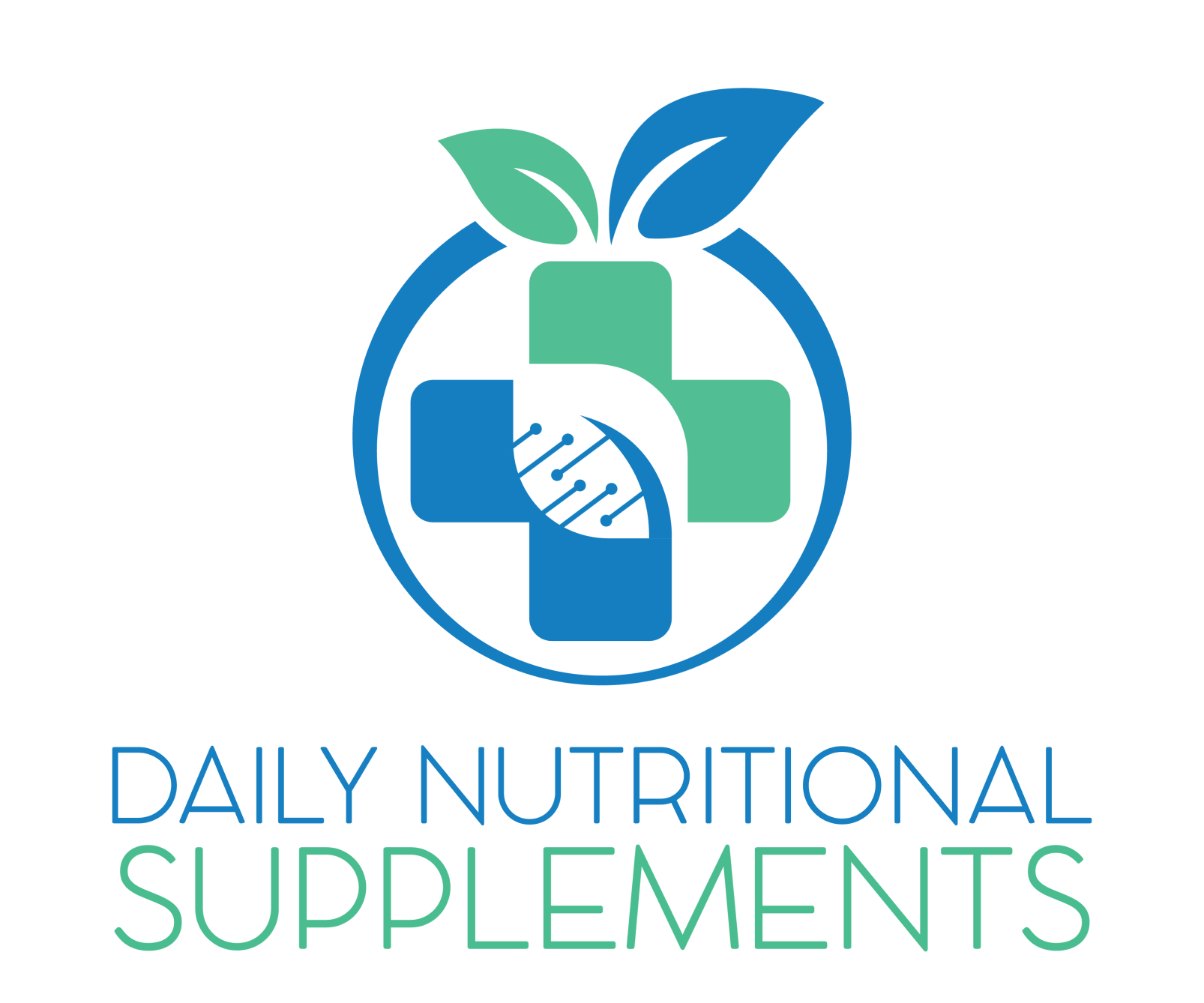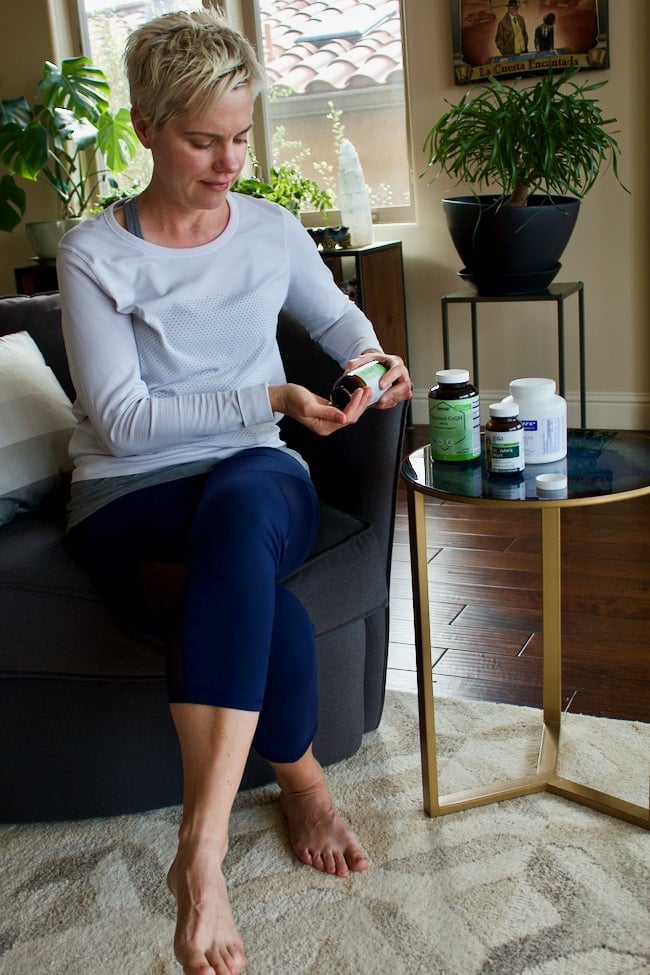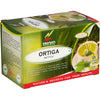Changing Needs of Women Over 50
Women over fifty years old are presented with different challenges than women in our earlier years. The most notable change is that fifty is the average age that women enter menopause, the ceasing of the menstrual cycle.
Menopause is associated with lower levels of reproductive hormones, especially estrogen and progesterone. Because of this, menopausal women are more susceptible to hot flashes, night sweats, mood swings, depression, brain fog, insomnia, urinary incontinence, lowered sex drive, thinning skin, and osteoporosis.
This article shares the ten best vitamins for women over 50, plus reasons why women need to consider supplementation as part of our self-care routine.
Changing Needs of Women Over 50
Women over fifty years old are presented with different challenges than women in our earlier years. The most notable change is that fifty is the average age that women enter menopause, the ceasing of the menstrual cycle.
Other potentially big stressors and changes that women over fifty have to deal with include:
- taking on more leadership roles at work or in the community
- caring for aging parents
- adjusting to empty-nesting after children move away
- getting divorced or remarried
- down-sizing and moving to a smaller home
Why Vitamins & Supplements Are Part of Self-Care
With all of these life stressors, it’s so important for women at every age to take care of ourselves! Self-care can include everything from getting enough sleep, eating more fruits and vegetables, learning to manage stress better, and taking vitamin supplements to help support mood, stress, energy, and vitality.
1. CoQ10 for Oxidative Stress and Cardiovascular Health
Coenzyme Q10, often shortened to CoQ10, is a compound that helps generate cellular energy. Our bodies produce CoQ10, but production slows down as we age. Thus, women in their 50s tend to be more deficient in this compound.
CoQ10 is important because it has been shown to help with energy transfer among cells, protect cells from oxidative damage, help skin to look vibrant and young, reduce headaches, help control diabetes, help protect the lungs, and reduce the severity and frequency of cardiac events.
There are other things besides aging that can reduce CoQ10 production in a woman’s body. The most common one is the use of prescription medications – specifically statins for lowered cholesterol support. If you take a statin medication, you’ll definitely want to supplement with CoQ10. Other risk factors for lowered CoQ10 production include nutritional deficiencies, genetic defects, oxidative stress, and increased tissue demand caused by some diseases such as Lyme.
2. Black Cohosh or Chinese Ginseng for Hot Flashes
Black cohosh is currently being studied for the treatment of symptoms associated with menopause – specifically, hot flashes. It is also being studied as a supplement with the ability to help menopausal women stave off osteoporosis.
Chinese ginseng, also known as panax ginseng, might be another option for controlling hot flashes for some women. This herb has also shown to be beneficial for mood swings associated with menopause as well as sleep disturbances associated with reduced estrogen production.
3. Magnesium for Bones, Sleep, Stress Reduction, and More
Magnesium deficiency is quite common among women in their 50s in the United States. Deficiencies in this crucial mineral could lead to muscle cramping and weakness, bone pain, increased anxiety, depression, fatigue, high blood pressure, irregular heartbeat, headaches, sleep disorders, and more.
It is recommended that women in their 50s and beyond supplement with at least 400 mg of magnesium daily. If you are taking an antacid, blood pressure medication, antibiotics, or any type of hormonal replacement therapy medication, you will need to supplement with even more magnesium.
4. DIM for Estrogen Metabolism
Diindolylmethane, or DIM, has been shown to promote a healthy menopausal transition. DIM is derived from cruciferous vegetables and is used to support estrogen metabolism in postmenopausal women. Proper metabolism of estrogen has been shown to decrease one’s risk for breast, uterine, cervical, and colorectal cancers.
DIM is such an amazing supplement – it has research showing that it can prevent breast cancer because of how it helps metabolize estrogen. I highly recommend asking your healthcare practitioner about starting this one.
5. Passion Flower or Valerian Root for Sleep
Passion flower has been used for centuries as a calming herb and sleep aide. Research has shown that compounds found in passion flower bind to GABA receptors in the brain and nerves, which are responsible for promoting calmness and relaxation. Those who drank a tea made from passion flower before bedtime had an easier time overcoming insomnia.
Valerian root is another medicinal compound that has been used for sleep disorders, namely insomnia, or centuries. Studies have shown that use of valerian root can help people fall asleep faster and get into a deeper REM state of sleep. This herbal remedy should not be used if you have a known liver disorder or are currently taking a benzodiazepine. It should not be combined with alcohol or any other nervous system depressants. It has also been shown to negatively react with St. John’s Wort.
6. Turmeric for Inflammation
Turmeric is often a much better and less potentially harmful anti-inflammatory option over non-steroidal anti-inflammatories medications (NSAIDs) like ibuprofen and aspirin. Curcumin is the key component in turmeric that has been shown to be beneficial for inflammation.
Turmeric has been used for centuries to help alleviate inflammatory conditions caused by wounds, infections, and diseases. Chronic inflammation is something quite a few people tend to deal with as they age. That’s why it’s recommended to take a turmeric supplement that contains a good dose of curcumin.
7. Omega-3 Fatty Acids for Mood and Inflammation
Omega-3 fatty acids have many benefits. The essential oils found in fish oil have been shown to help fight mood disorders such as anxiety and depression, improve eye health, promote healthy brain aging, reduce brain fog, fight inflammation, help prevent some types of cancer, reduce fatty liver disease, improve bone and joint health, and improve sleep.
EPA and DHA, the essential omega-3 fats found in fish oil, are essential to optimal health. You can find these fats in cold water fish like salmon. You can also obtain them through supplementation as most people do not consume enough fish.
8. St. John’s Wort for Mood
Depression is more common in women going through menopause. There are a lot of hormonal changes taking place, and many of them are not welcome changes.
St. John’s wort is a wild plant that has been used for centuries to treat mood disorders – specifically depression. Several recent studies have shown St. John’s wort to be as effective as prescription antidepressants for improving mood disorders.
Short-term usage of St. John’s wort is worth a try if you’re feeling a little blue. But please consult your healthcare practitioner about any possible interactions or if you experience side effects. St. John’s Wort can reduce the effectiveness of hormonal birth control.
9. Calcium + K2 + D3 for Bone Health and Immune Health
As we age, we leach more calcium from our bones. We need adequate amounts of calcium. However, the most recent research recommends against taking a stand-alone calcium supplement. It’s safer to combine calcium with vitamins K2 and D3.
Taking calcium with K2 and D3 helps to get it to its intended place, the bones, as opposed to the arteries or kidneys. Vitamin D3 controls the absorption of calcium into the blood while vitamin K2 controls where the calcium ends up. Deficiencies in calcium, K2 and D3 can have negative effects on our immunity as well. Supplementing with them is beneficial if you want to experience healthier aging.
10. B Vitamins for Energy
The B-vitamins are a family of water-soluble vitamins that our bodies use for many functions. Our bodies need adequate amounts of B-vitamins to produce energy from the foods we eat- given that we’re eating nutrient-dense foods that our bodies can turn into useful energy.
B12 is the star B vitamin when it comes to energy production. Look for a B12 or B-vitamin complex that lists adenosylcobalamin as a source. This is an active form of B12 with the best energy output. However, all of the B vitamins are necessary for optimal health. That’s why I recommend a B-complex supplement to ensure that you’re getting an adequate amount of each of the B vitamins.


















